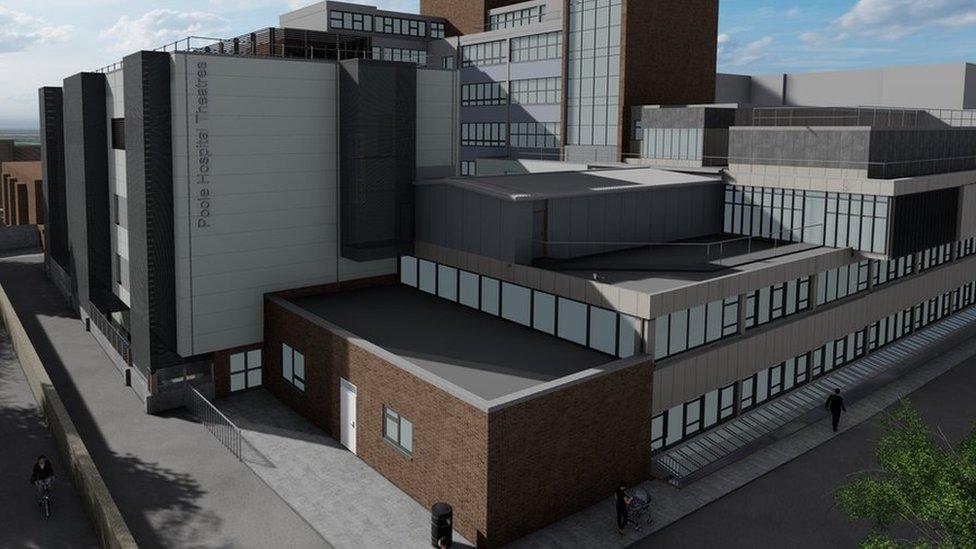University Hospitals Dorset development plans brought forward
- Published
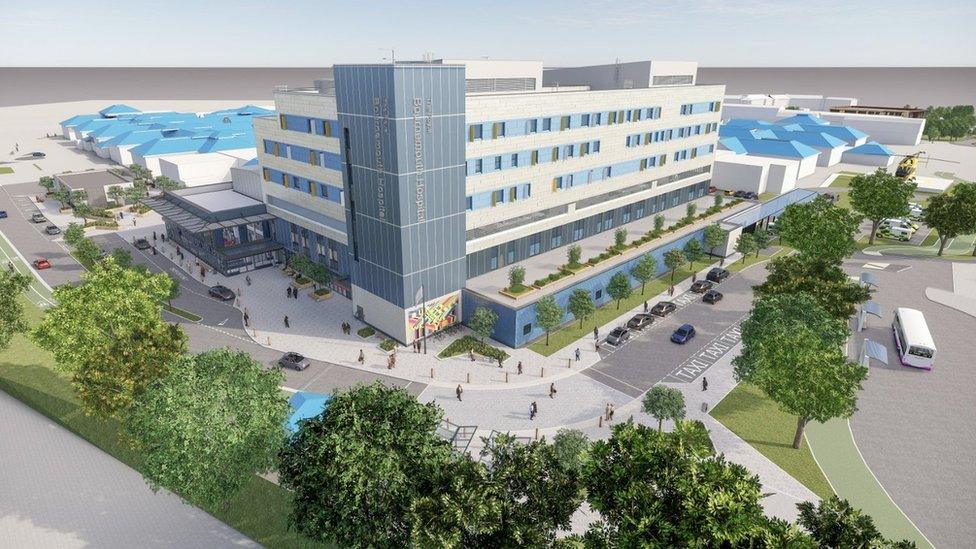
A new major emergency hospital is planned at the Royal Bournemouth site
Major transformations of two hospitals have been brought forward by 18 months.
The University Hospitals Dorset board has decided to establish a planned care hospital at Poole Hospital, and a major emergency hospital at Royal Bournemouth Hospital, from spring 2025.
Chief executive Siobhan Harrington said: "For everyone... our patients and their families, colleagues and the public... this is fantastic news."
Patients were previously not expected to benefit until late 2026.
Construction is taking place of a new building on the Royal Bournemouth site with a purpose-built maternity unit, children's unit, enhanced emergency department, and critical care unit.
It will also get a new ward block and a pathology hub.
Poole Hospital will have a new theatres complex, comprising a five storey tower with an urgent treatment centre open twenty-four hours a day, and enhanced outpatient, cancer and diagnostic services.
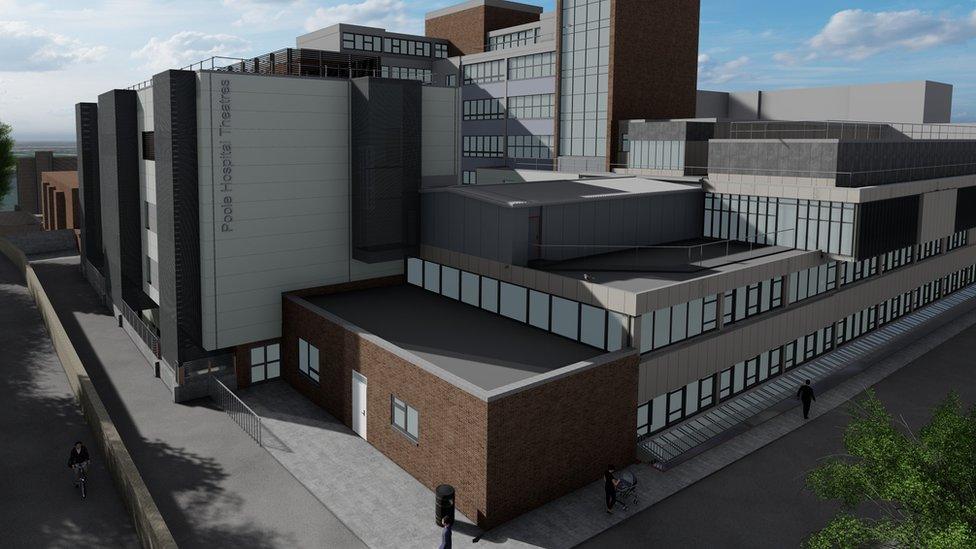
Poole Hospital is being developed to become the major planned care site for Dorset
Dr Isabel Smith, medical director for strategy and transformation, said: "Led by our clinicians, we've been looking at the safest and most practical way to achieve our aim of separating planned and emergency care within our new and existing buildings.
"We collaborated with local GP leaders, the ambulance service as well as other partners in considering safe pathways for our patients.
"We're really pleased that we now have confirmation to reconfigure our services across the sites in spring 2025 - resulting in earlier patient benefits from the split between emergency and planned care."
NHS Dorset's chief medical officer Dr Paul Johnson added: "This is great news and moves us a step nearer to delivering very significant benefits for patients."
He described it as a "once in a generation" opportunity to reconfigure services.
"It will lead to easier access to emergency and planned care, shorter waiting times as well as better outcomes through revised patient pathways using both sites," he said.

Follow BBC South on Facebook, external, Twitter, external, or Instagram, external. Send your story ideas to south.newsonline@bbc.co.uk, external.
Related topics
- Published1 February 2023
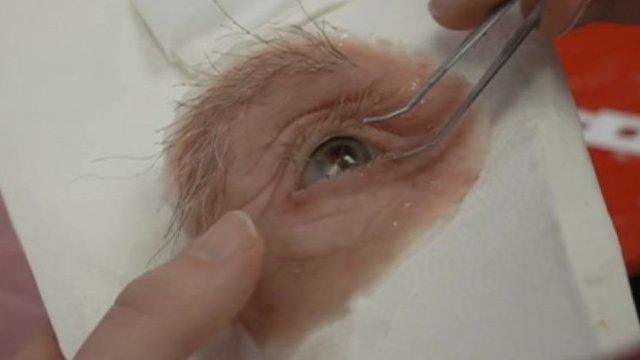
- Published27 January 2022
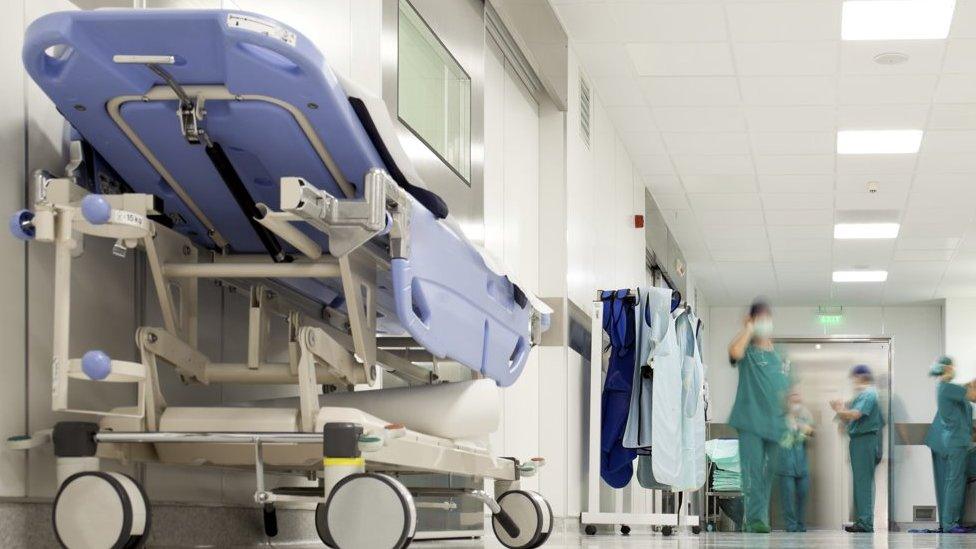
- Published18 January 2023
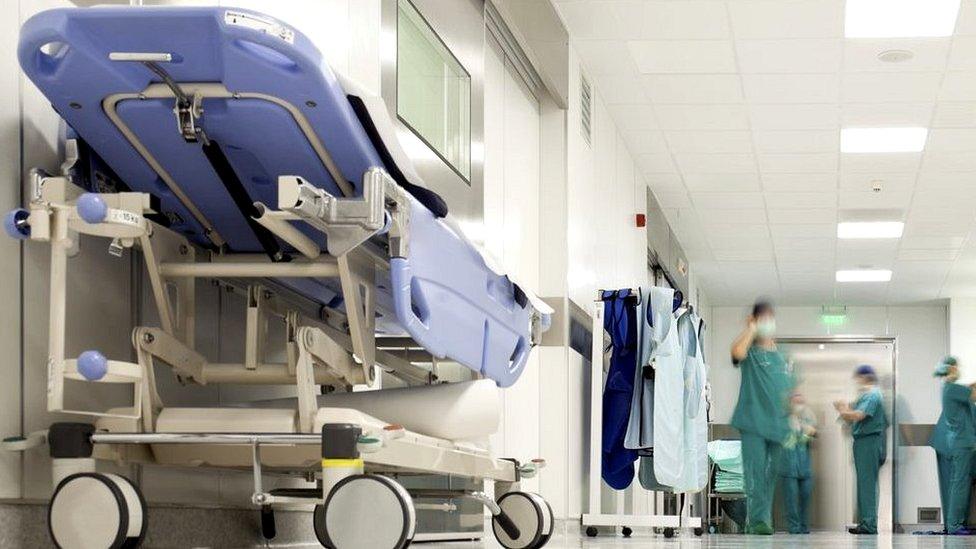
- Published29 December 2022
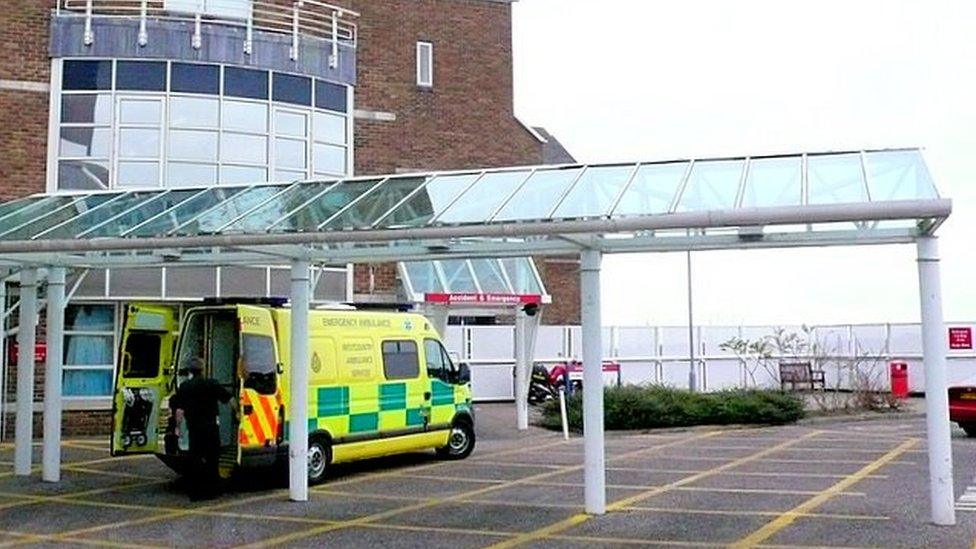
- Published17 January 2023
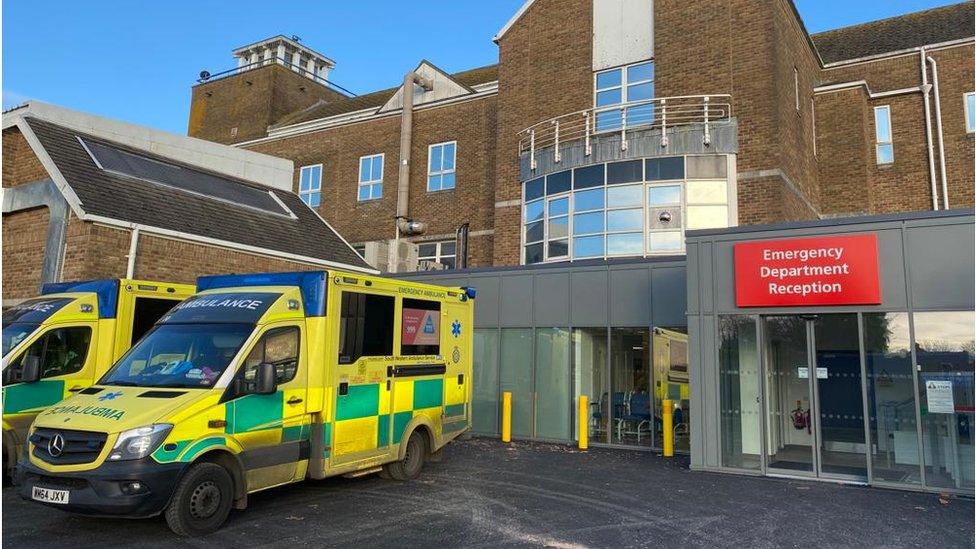
- Published6 May 2022
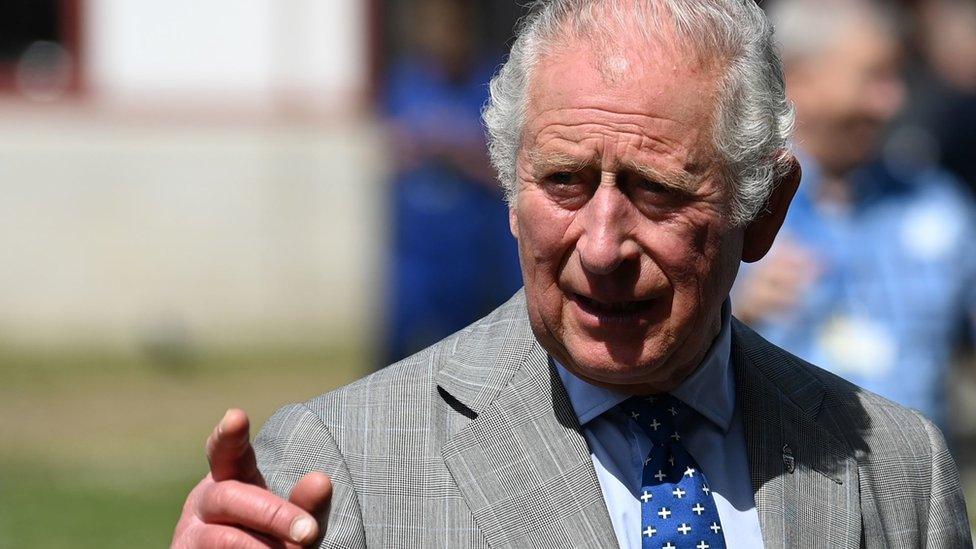
- Published9 March 2022
